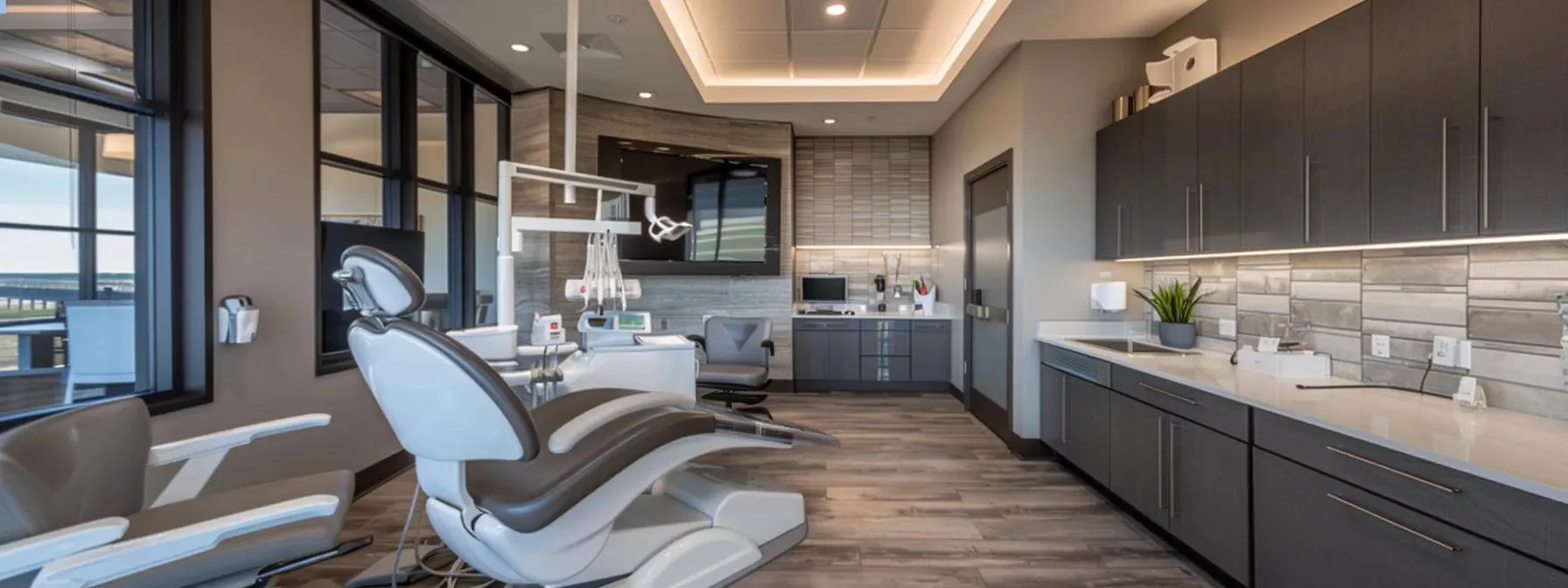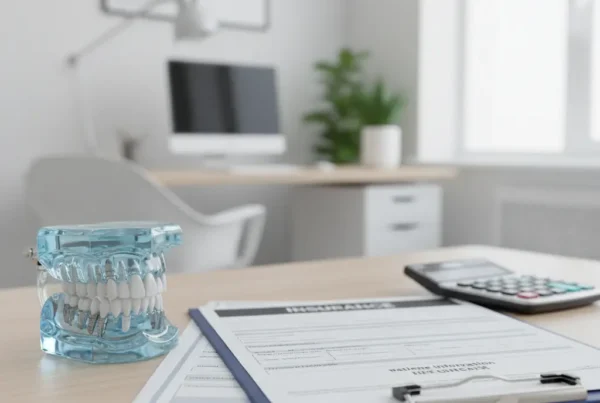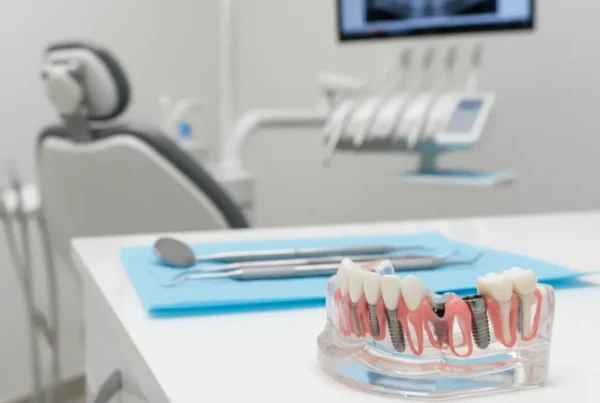Worried that you might be too old for dental implants? Here’s some wonderful news: age is just a number when it comes to getting dental implants. Dr. Behrooz Khademazad has successfully placed implants in patients well into their 80s and 90s during his 34 years of practice in Grand Prairie. What really matters isn’t how many candles are on your birthday cake, but how healthy you are overall and whether your jawbone can support an implant.
Breaking the Age Barrier Myth
The idea that there’s a magic age when you become “too old” for dental implants is simply not true. Dr. Khademazad has seen 75-year-old patients heal beautifully from implant surgery while some 50-year-olds face challenges due to health conditions. Your body’s ability to heal and your overall health matter much more than the year you were born.
Many people think that once you reach a certain age, dental implants are off the table. This misconception keeps countless seniors from getting the dental care they deserve. The truth is that chronological age alone doesn’t determine whether you’re a good candidate for implants. What matters is your biological age – how well your body functions and heals.
Dr. Khademazad evaluates each patient as a whole person, not just a number. A healthy 80-year-old who exercises regularly, eats well, and doesn’t smoke often has better implant outcomes than a younger person with diabetes, heart disease, or poor lifestyle habits. The American Dental Association supports this approach, recognizing that dental health shouldn’t be limited by age when other factors are favorable.
Your body’s healing ability is what really counts. Some people maintain excellent healing capacity well into their senior years, while others may have compromised healing at younger ages due to medical conditions or lifestyle factors. Dr. Khademazad’s experience in Grand Prairie has shown him that motivation and health status are far better predictors of implant success than age alone.
Understanding How Aging Affects Your Mouth
As we get older, our bodies do go through changes that can affect dental implant success. Understanding these changes helps you and Dr. Khademazad plan the best approach for your situation. The good news is that modern dentistry has solutions for most age-related challenges, making implants possible for nearly everyone who wants them.
Bone density naturally decreases as we age, especially in women after menopause. This is probably the most significant age-related factor that affects implant placement. However, having some bone loss doesn’t automatically disqualify you from getting implants. Dr. Khademazad can often rebuild bone through grafting procedures, creating a strong foundation for your implants.
Your gums may also change with age, becoming thinner or more prone to recession. While this requires careful evaluation, it doesn’t prevent implant placement. Dr. Khademazad has extensive experience working with patients who have age-related gum changes and knows how to adapt treatment plans accordingly.
Healing may take a bit longer as you get older, but it still happens effectively in healthy patients. Your body’s ability to grow new bone around an implant remains strong throughout life, though the process might take a few extra weeks compared to younger patients. Dr. Khademazad adjusts treatment timelines to accommodate natural healing patterns at any age.
Lifestyle Matters More Than Age
Your daily habits have a much bigger impact on implant success than your age. Dr. Khademazad has seen young patients struggle with implant healing due to poor lifestyle choices, while older patients with healthy habits enjoy excellent outcomes. This is why he focuses on helping patients optimize their habits rather than worrying about their birth year.
Smoking is the single biggest threat to implant success at any age. Whether you’re 30 or 80, smoking dramatically increases your risk of implant failure. The good news is that quitting smoking, even later in life, significantly improves your chances of successful implants. Dr. Khademazad provides support and resources to help patients quit smoking before implant treatment.
Exercise and good nutrition become even more important as we age, and they play crucial roles in implant success. Regular physical activity improves blood circulation, which helps with healing. A diet rich in protein, calcium, and vitamins supports bone health and tissue repair. Many of Dr. Khademazad’s older patients find that preparing for implants motivates them to adopt healthier lifestyle habits.
Here are the lifestyle factors that really influence implant success:
- Smoking cessation to improve blood flow and healing
- Regular exercise to enhance circulation and overall health
- Balanced nutrition with adequate protein and calcium
- Limited alcohol consumption to support proper healing
- Good oral hygiene to prevent infections around implants
- Stress management to support immune function and healing
Medication management is another important consideration, especially for older patients who may take multiple medications. Some medications can affect bone healing or increase bleeding risk during surgery. Dr. Khademazad works closely with your other doctors to ensure your medications are optimized for implant success while maintaining your overall health.
Your Personal Health Assessment
Every patient gets a thorough evaluation before Dr. Khademazad recommends implants, regardless of age. This comprehensive assessment looks at all the factors that affect implant success, creating a complete picture of your individual situation. The evaluation process is the same whether you’re 40 or 90 – what matters is your unique health profile.
Your medical history provides crucial information about conditions that might affect implant healing. Diabetes, osteoporosis, heart disease, and autoimmune conditions all require special consideration, but they don’t automatically rule out implants. Dr. Khademazad has successfully treated patients with these conditions by working closely with their other healthcare providers to optimize their health.
Advanced imaging technology allows Dr. Khademazad to see exactly what’s happening inside your jawbone. These detailed 3D images show bone density, volume, and quality, helping him determine the best approach for your specific anatomy. This technology has made implants possible for many patients who might not have been candidates in the past.
| Assessment Factor | Why It Matters | How It’s Evaluated |
| Bone Quality | Provides foundation for implant | 3D CT scans and bone density measurement |
| Overall Health | Affects healing and success rate | Medical history review and health screening |
| Gum Health | Prevents infection around implant | Periodontal examination and treatment |
| Lifestyle Factors | Influences healing and maintenance | Discussion of habits and motivation |
Your current medications are reviewed to identify any that might affect implant surgery or healing. Blood thinners, steroids, and certain other medications may need to be adjusted around the time of surgery. Dr. Khademazad coordinates with your other doctors to ensure your medications are managed safely throughout the implant process.
Solutions for Age-Related Challenges
Modern dentistry has amazing solutions for the challenges that sometimes come with aging. Dr. Khademazad stays current with the latest techniques and technologies that make implants possible for patients who might not have been candidates in the past. These advances mean that age-related obstacles can often be overcome with the right approach.
Bone grafting is one of the most important advances in implant dentistry. When age-related bone loss has occurred, Dr. Khademazad can rebuild the bone using various grafting techniques. This process adds bone material to areas where it’s needed, creating a strong foundation for implants. Many patients are amazed at how well their bodies accept and integrate these bone grafts.
Mini implants offer another solution for patients with limited bone density. These smaller implants require less bone than traditional implants and can often be placed without bone grafting. While they’re not suitable for every situation, mini implants can be an excellent option for older patients with certain types of bone loss.
The Dallas-Fort Worth area, including Grand Prairie, has access to some of the most advanced dental technologies available. Dr. Khademazad uses computer-guided implant placement, which allows for incredibly precise positioning even in challenging cases. This technology improves outcomes and often makes implants possible in situations that would have been difficult with traditional methods.

Making the Right Decision for You
Deciding whether to get dental implants shouldn’t be based on your age alone. Dr. Khademazad helps each patient weigh all the factors that matter – health status, bone condition, lifestyle, goals, and personal preferences. This comprehensive approach ensures that you make the best decision for your unique situation.
Your quality of life goals are an important part of the decision-making process. Many older patients want to enjoy foods they’ve had to avoid due to missing teeth, or they want to feel confident smiling and speaking. These goals are just as valid at 80 as they are at 40, and Dr. Khademazad takes them seriously when planning treatment.
The long-term benefits of implants often outweigh concerns about age. Implants help preserve remaining bone, maintain facial structure, and provide stable function for eating and speaking. These benefits can significantly improve quality of life for years or even decades, making implants a worthwhile investment at almost any age.
Here are important considerations when deciding about implants later in life:
- Your overall health and healing capacity
- The condition of your remaining teeth and jawbone
- Your personal goals for eating, speaking, and appearance
- Your ability to maintain good oral hygiene after treatment
- Your commitment to regular dental care and follow-up visits
Dr. Khademazad believes in honest communication about realistic expectations. While implants can be incredibly successful in older patients, the process may take longer and require more steps than in younger patients. Understanding this upfront helps you make an informed decision and prepare appropriately for treatment.
Taking Action at Any Age
If you’re considering dental implants but worried about your age, the best first step is scheduling a consultation with Dr. Khademazad. During this visit, he’ll evaluate your specific situation and give you honest advice about your options. Many patients are pleasantly surprised to learn that age isn’t the barrier they thought it would be.
Preparing for implants at any age involves optimizing your health and lifestyle. This might mean working with your doctor to better control diabetes, starting an exercise program, or making dietary changes. Dr. Khademazad’s team provides guidance and support throughout this preparation process.
The consultation process includes a thorough examination, review of your medical history, and discussion of your goals and concerns. Dr. Khademazad takes time to answer all your questions and explain exactly what would be involved in your specific treatment. This information helps you make a confident decision about moving forward.
Don’t let age-related concerns prevent you from exploring your options. Dr. Khademazad has helped countless Grand Prairie patients overcome age-related obstacles to achieve the smiles they want. With his 34 years of experience and commitment to personalized care, he can help you determine whether implants are right for you, regardless of your age.
Your Age-Positive Implant Journey
Age should never be a barrier to getting the dental care you deserve. Dr. Khademazad’s approach focuses on what’s possible rather than what might be challenging, helping patients of all ages achieve their dental health goals. His experience has shown that motivation and good health habits matter far more than the number on your driver’s license.
The key to successful implants at any age is working with an experienced dentist who understands how to adapt treatment for individual needs. Dr. Khademazad’s 34 years of practice in Grand Prairie have given him extensive experience with patients of all ages, and he knows how to help each person achieve the best possible outcome.
Your smile and your ability to eat, speak, and feel confident shouldn’t be limited by your age. With proper evaluation, preparation, and care, dental implants can transform your quality of life whether you’re 50, 70, or 90. Take the first step by scheduling a consultation to learn about your personal options for dental implants.
Schedule your consultation today with Dr. Behrooz Khademazad and discover what personalized dental care in Grand Prairie, TX truly feels like.
Schedule Your Consultation Today!
2475 W Pioneer Pkwy Grand Prairie, Texas, 75051
Google Reviews: See More Reviews From Grand Prairie Family Dental
View information about local places in our community.
Driving Directions to Our Practice
Frequently Asked Questions
Is there a maximum age limit for getting dental implants?
There’s no specific maximum age limit for dental implants. Dr. Khademazad focuses on your overall health, bone density, and healing capacity rather than your chronological age when determining eligibility. He has successfully placed implants in patients well into their 80s and 90s who were in good health and motivated to maintain their oral care.
Can elderly patients successfully receive dental implants?
Absolutely! Elderly patients can have excellent success with dental implants when they’re in good overall health. Success depends much more on factors like bone quality, gum health, and lifestyle habits than on age itself. Dr. Khademazad thoroughly evaluates each patient’s individual circumstances to ensure the best possible outcome.
Does bone loss due to aging prevent dental implant procedures?
Age-related bone loss doesn’t automatically disqualify you from getting dental implants. Dr. Khademazad offers solutions like bone grafting procedures that can rebuild and strengthen your jawbone to support implants. Modern techniques make it possible to create a strong foundation for implants even when significant bone loss has occurred due to aging.






